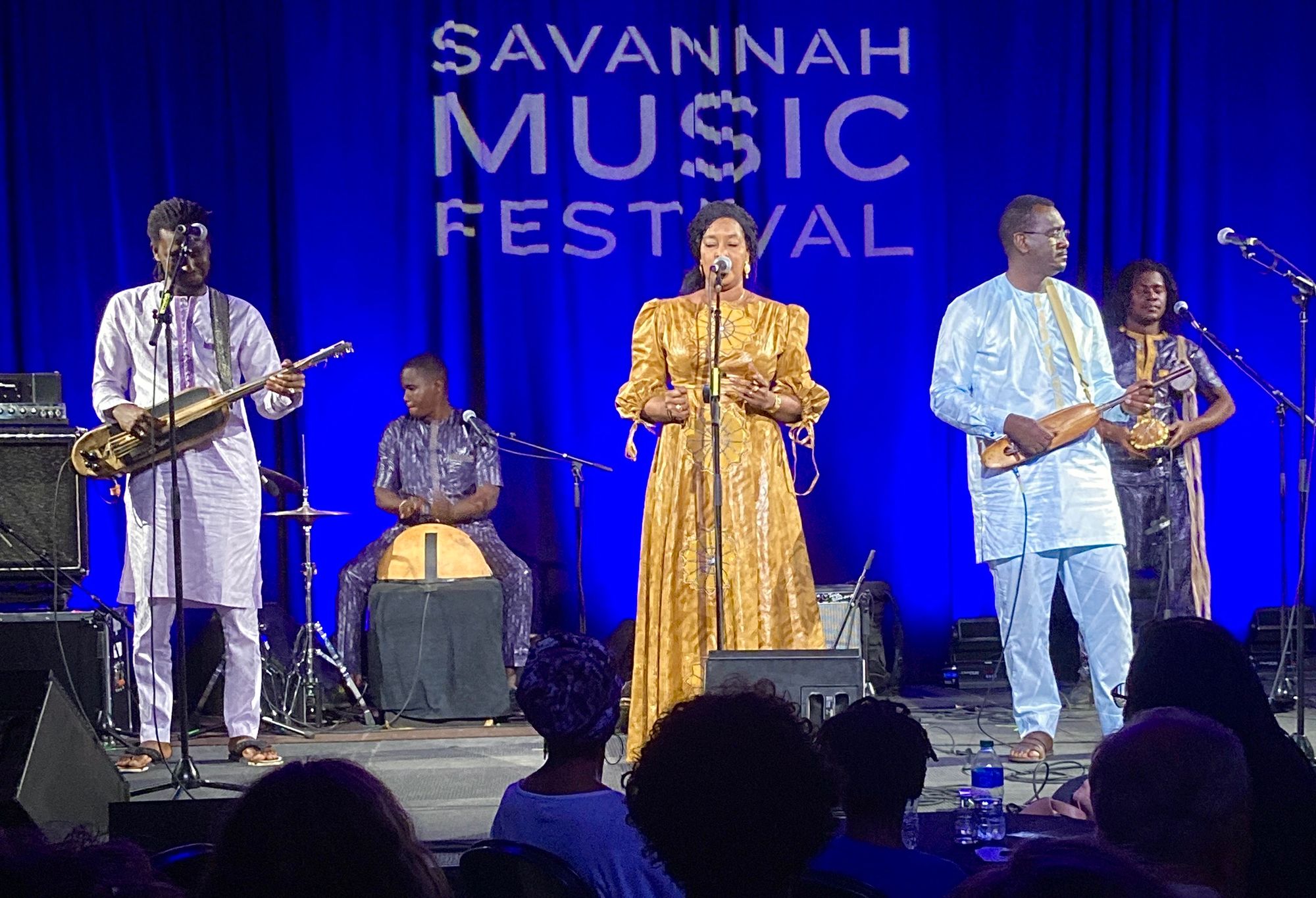EASILY one of my top three artists ever to have come to the Savannah Music Festival over the years is the great Bassekou Kouyate. I’m constantly evangelizing people to listen to his music and seek out his shows, because they are life-changing, joyful experiences.
More than any single person, Kouyate could lay claim to being the best musician in Africa – which is saying quite a lot – and one could argue the best musician in the world today.
However, the man himself seems quite humble and generous, and my guess is he would studiously avoid making any such public boasts.
Kouyate plays a traditional African instrument called an ngoni, or n’goni – in his description, “father to the banjo, and grandfather to the guitar.”
The 56-year-old Malian musical genius been called the “Jimi Hendrix of the N’Goni,” which is an apt comparison in that Kouyate, too, makes sounds with his instrument that don’t appear to be possible.
I still can’t figure out how Kouyate can make such a bright, shimmering storm of notes come from a stringed instrument with four strings and a very short neck – no longer than a ukulele's, and narrower. But he does, over and over, coaxing a cascade of tones over the solid rhythms of his young and engaging backing ensemble.
While the n'goni's roots go back at least a thousand years, Kouyate has revolutionized its use and performance throughout his long career. He plays a custom, modernized n'goni with an installed pickup, and runs it through a pedal board just like any rock guitarist – complete with wah pedal.
On previous tours, Kouyate has played with an all-n'goni band, which is quite an experience to behold. But on this tour things are a bit more rounded out. He plays with two percussionists, his brother Moctar Kouyate and Mahamadou Tounkara, both of whom could make an awesome concert just between the two of them. His “bass” player – it’s actually a lower-register n’goni, invented by Bassekou himself -- is his oldest son, Mamadou Kouyate.
The presentation is complete with the scintillating and powerful vocals of Kouyate’s wife, Amy Sacko, an established solo artist in her own right.
Together, they play the music of their home country, Mali – one of the world’s great crossroads of music, at the intersection of sub-Saharan African culture and North African Islamic culture, with a garnish of French colonial influence.
While the highlight of the show is the weaving interplay between Bassekou’s lead n’goni, the band, and the vocals, a nice interlude happened when Bassekou sat down on a stool solo and played “African blues, not American blues.” At one point he put a slide on his pinkie finger and made the tiny n’goni sound almost like delta blues – reinforcing the African origin of the genre.
But drummer Tounkara very nearly stole the show with an energetic, extended solo on the remarkable yama, or talking drum. Held high under one arm, the small drum changes tone by being squeezed between arm and body.
My only complaint about the show is it ended too soon. I went to the late, 8:30 show at the Metal Building, and Bassekou’s set apparently had to end right at 11 p.m. a bit abruptly, I assume due to the noise permit expiring.
Opening for Kouyate was the interesting and eclectic young folk/Afro-futurist/roots music ensemble comprising Jake Blount, Nic Gareiss, and Laurel Premo. The premise is a bit difficult to explain, but it boils down to Blount’s banjo and fiddle and Gareiss’s percussive Appalachian dancing held together by Premo’s deeply soulful and creative hollow-body electric guitar work.
The trio focus on updated takes on traditional tunes. While I admire their effort to educate the audience on the origins and importance of the various musical traditions they explore – from Scots/Irish to African Diaspora to Scandinavian – I have to say that their insistence on introducing and explaining every song through a thoroughly modern political lens does suck some of the joy out of the performance.
My abiding, if possibly mistaken, sense is that these white-adjacent musicians are perhaps a bit sensitive about being accused of cultural appropriation, and might be overcompensating a bit?
If my description makes it all sound a bit like a twee NPR Tiny Desk concert, that’s not entirely inaccurate. What makes the group special is Premo’s splendidy sensitive, finger-picking style of guitar, both in her immense taste level as well as the sheer sonic beauty of her guitar tone and dynamics. I could listen to her play for hours.

